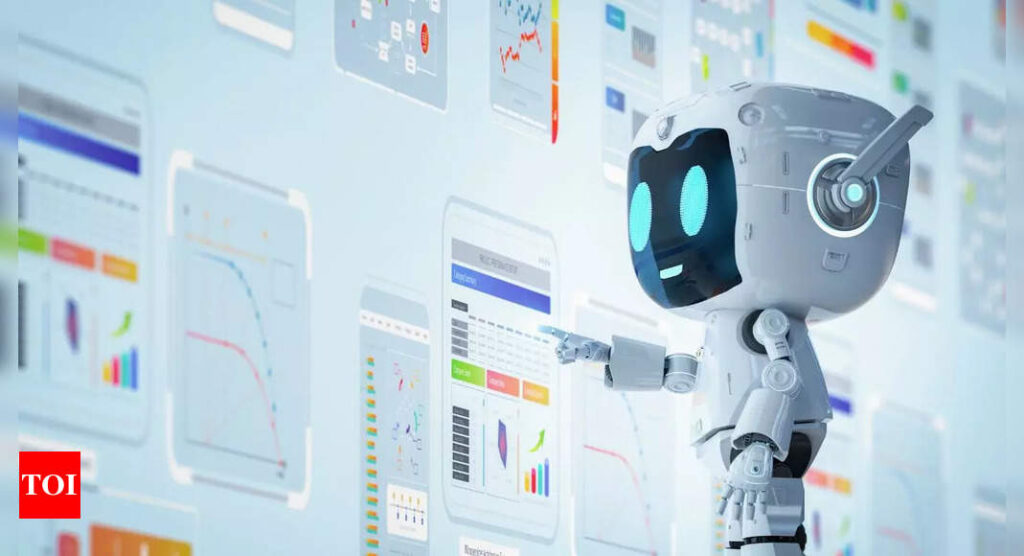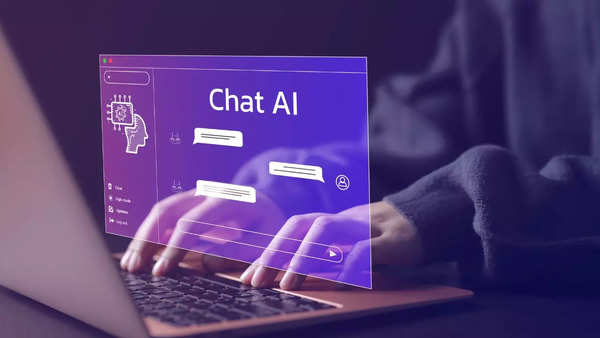New trend: AI painting your complete life! A safety hazard?

‘ChatGPT, create a picture of my life based on the data you have on me.’ Does that sound familiar? Well, if you’re active on social media, you’re definitely familiar with statements and commands like this! There’s a new, and undeniably fascinating, trend buzzing around… fascinating for some, creepy and scary for others.
User reactions: impressed or creeped out?
People all around the world are commanding ChatGPT to paint a picture of their lives based on the information it has gathered over the time they’ve been using it. Yes, if you didn’t know, ChatGPT is believed to save all of your information- – everything, from silly personal questions like ‘How do I make him like me?’ to important work presentations and the data you provide for fact-checking and enhancement. Sounds like an invasion of privacy now, doesn’t it? Well, how else could AI paint such accurate pictures of people’s lives, leaving them totally stunned?
An ‘X’ user, @LinusEkenstam, recently posted a tweet, and we quote: “Ask ChatGPT, ‘Based on what you know about me, draw a picture of what you think my current life looks like.'”
Ask ChatGPT
“based on what you know about me. draw a picture of what you think my current life looks like”
past your responses below.
thanks again @mreflow & @danshipper
— Linus Ekenstam (@LinusEkenstam) November 8, 2024
The responses to this tweet are beyond shocking! One user commented, “Idk if I’m creeped out or impressed. Pretty damn accurate lol.” Another said, “ChatGPT has a significantly better opinion of me than I do of myself.” One user added, “ChatGPT knows I want to tinker with AI in my home office instead of spending time on corporate minutiae. More aspirational than current, but I think ChatGPT knows what’s coming soon.”
How accurate are these AI life pictures ?
While some users were incredibly surprised by how accurate the results were when using the provided prompt, seeing how closely their life picture matched reality, others were not as thrilled- – or should we say, did not entirely agree with what @LinusEkenstam shared.

One user commented, “I think these are largely derived from the personalization instructions in one’s account, not as much from the memory it saves from chats.” @LinusEkenstam replied, “I don’t have personalization turned on, so I’m pretty sure it’s memory.”
Is it a safety hazard?
Although the trend of AI creating a picture of your life based on personal data may seem interesting, it brings up serious questions and concerns about privacy and data security. ChatGPT, just like other AI tools, uses the information it has collected from user interactions, which could include sensitive details. Even if users are impressed by how accurate the life pictures are, it’s important to ask: what happens to all this data?
Data leaks and security concerns

In March 2023, OpenAI faced a significant and note-worthy issue when ChatGPT went offline for a while. During this time, some users accidentally saw other people’s chat histories, and there were reports that payment details from ChatGPT Plus subscribers were exposed. OpenAI later published a report explaining what happened. While they fixed the issue, it emphasizes that, like any online service, AI platforms can have severe and unignored security problems. With the rise of cyberattacks, there’s always a chance that personal information could be leaked.
Major privacy concerns

It’s natural to be concerned about how your data is used. ChatGPT warns users not to share sensitive information, and once conversations are saved, they can’t be deleted. The AI keeps these chats to help improve itself. While this helps make the system better, it raises questions about how much personal and sensitive information is stored and what could happen to it later. With ChatGPT saving everything from basic questions to personal conversations, privacy concerns are growing.
Security risks: identity theft, manipulation, and scams
ChatGPT can be misused to collect personal information. For example, it could be asked to share details about a person’s online habits, which could be used for identity theft or scams. Even though ChatGPT is meant to avoid harmful content, hackers have found ways to make it create dangerous code. As ChatGPT becomes more popular, scammers are also making fake apps to steal personal data or spread malware. To stay secure, it is important to always use ChatGPT through official channels and avoid suspicious offers.

Study finds security risks in AI: ChatGPT can be tricked into malicious actions
A study by the University of Sheffield that was presented at the ISSRE conference on October 10, 2023, has indicated that AI tools like ChatGPT can be manipulated to create harmful code, which could lead to data theft and damage to computer systems. Researchers found that AI systems used to interact with databases could be exploited to steal sensitive information or disrupt services. This highlights the security risks as AI becomes more widely used in various industries.
Credits: University of Sheffield, led by PhD student Xutan Peng.
Real-life case: Samsung employees accidentally leak sensitive data via ChatGPT

In early 2023, as reported by Forbes, Samsung engineers accidentally shared sensitive information like source code and internal meeting notes while using ChatGPT to assist with work. Since ChatGPT stores user data to improve its system, this caused concerns about data security. In response, Samsung is developing its own internal AI tool to prevent further leaks and has warned employees that continued misuse could lead to ChatGPT being blocked on the company network.
In a nutshell, AI painting a picture of your life is a fascinating trend, offering a glimpse into how much technology can understand about you. But, while it’s exciting to see how accurate these AI-generated images can be, it also raises important questions about privacy and data security. As we explore this exciting new technology, it’s important to keep in mind how our personal information is being used.



